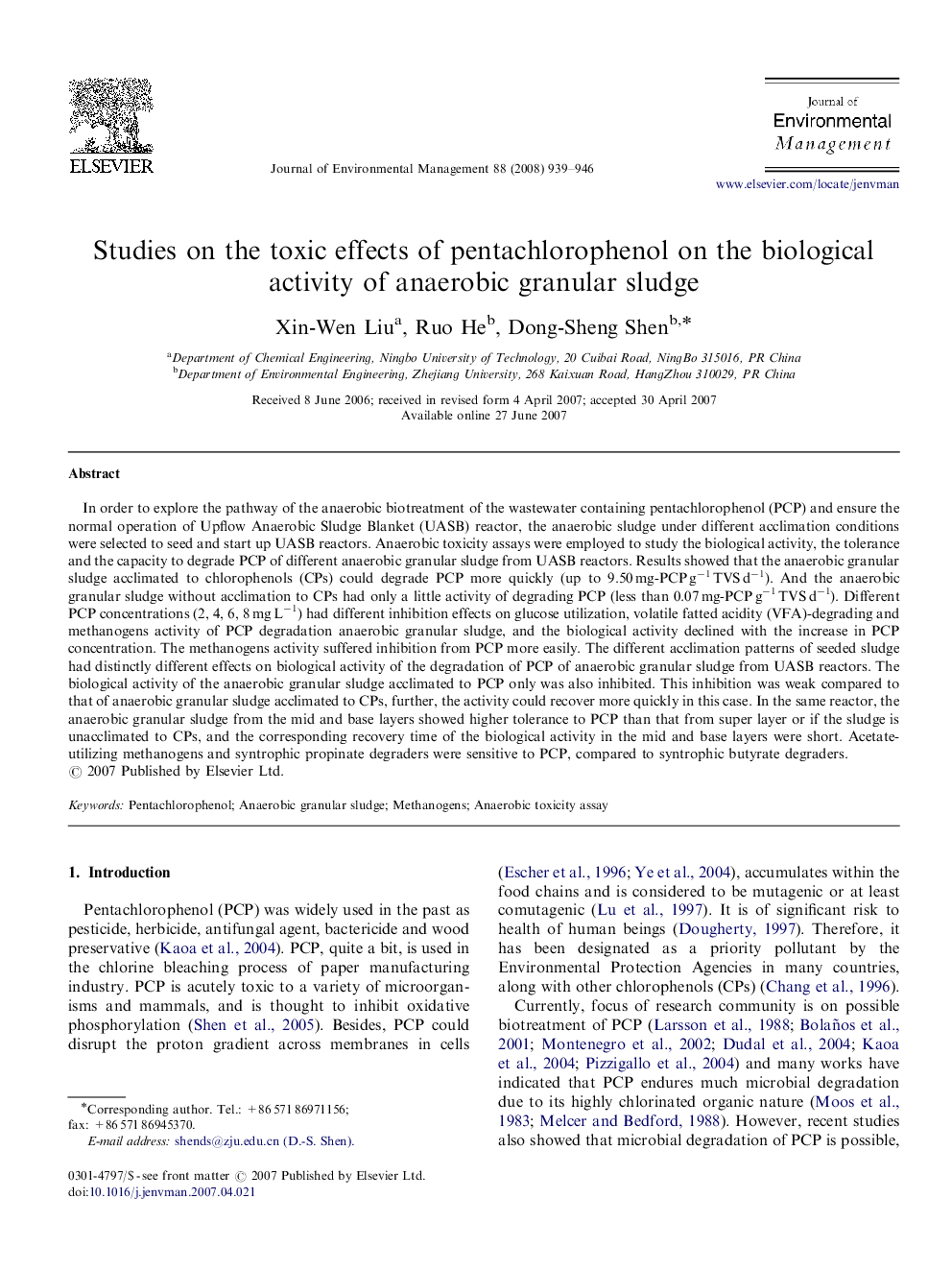| کد مقاله | کد نشریه | سال انتشار | مقاله انگلیسی | نسخه تمام متن |
|---|---|---|---|---|
| 1058290 | 947115 | 2008 | 8 صفحه PDF | دانلود رایگان |

In order to explore the pathway of the anaerobic biotreatment of the wastewater containing pentachlorophenol (PCP) and ensure the normal operation of Upflow Anaerobic Sludge Blanket (UASB) reactor, the anaerobic sludge under different acclimation conditions were selected to seed and start up UASB reactors. Anaerobic toxicity assays were employed to study the biological activity, the tolerance and the capacity to degrade PCP of different anaerobic granular sludge from UASB reactors. Results showed that the anaerobic granular sludge acclimated to chlorophenols (CPs) could degrade PCP more quickly (up to 9.50 mg-PCP g−1 TVS d−1). And the anaerobic granular sludge without acclimation to CPs had only a little activity of degrading PCP (less than 0.07 mg-PCP g−1 TVS d−1). Different PCP concentrations (2, 4, 6, 8 mg L−1) had different inhibition effects on glucose utilization, volatile fatted acidity (VFA)-degrading and methanogens activity of PCP degradation anaerobic granular sludge, and the biological activity declined with the increase in PCP concentration. The methanogens activity suffered inhibition from PCP more easily. The different acclimation patterns of seeded sludge had distinctly different effects on biological activity of the degradation of PCP of anaerobic granular sludge from UASB reactors. The biological activity of the anaerobic granular sludge acclimated to PCP only was also inhibited. This inhibition was weak compared to that of anaerobic granular sludge acclimated to CPs, further, the activity could recover more quickly in this case. In the same reactor, the anaerobic granular sludge from the mid and base layers showed higher tolerance to PCP than that from super layer or if the sludge is unacclimated to CPs, and the corresponding recovery time of the biological activity in the mid and base layers were short. Acetate-utilizing methanogens and syntrophic propinate degraders were sensitive to PCP, compared to syntrophic butyrate degraders.
Journal: Journal of Environmental Management - Volume 88, Issue 4, September 2008, Pages 939–946